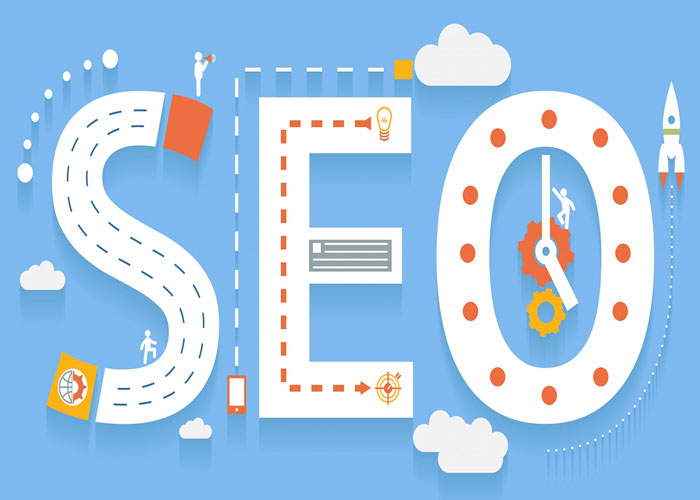In today’s competitive digital landscape, on-page SEO remains one of the most important factors for ranking higher in search engines like Google, Bing, and Yahoo. As a WordPress web designer, I help my clients optimize their websites using powerful SEO tools like Yoast SEO, Rank Math, and Google Search Console to improve their visibility and attract more relevant traffic.
What is On-Page SEO?
On-page SEO (also known as on-site optimization) involves optimizing both the content and HTML code of a webpage to improve its rankings. This differs from off-page SEO, which focuses on external factors like backlinks, paid ads (Google Ads, Facebook Pixel), social media marketing, and digital newsletters.
Top Search Engines You Want to Rank On
- Google – Dominates with over 90% market share worldwide.
- Bing – Continues to grow, especially with AI-powered search from Microsoft.
- Yahoo – Now powered by Bing, holding around 3% of the market.
Another niche search engines like DuckDuckGo (privacy-focused)
Top 5 On-Page SEO Factors for 2025
1. Optimize Title Tags
The title tag is the clickable headline that appears in search engine results. Make sure it:
✔ Is compelling and keyword-rich
✔ Includes your primary keyword near the beginning
✔ Stays within 50-60 characters to avoid being cut off
Example:
Bad: “Home – Welcome to Our Website”
Good: “Minneapolis WordPress Web Design | SEO & Branding Services”
2. Craft Click-Worthy Meta Descriptions
The meta description is the short summary that appears under your page title in search results. While not a ranking factor, it influences click-through rates (CTR).
✔ Keep it between 150-160 characters
✔ Use a call to action (CTA) to encourage clicks
✔ Include keywords naturally
Example:
Bad: “We offer services for businesses.”
Good: “Need a high-performing website? We specialize in WordPress web design and SEO to help Twin Cities businesses grow. Contact us today!”
3. Use SEO-Friendly URLs
Your URL structure should be clean, descriptive, and keyword-rich.
Bad URL Example:
https://mysite.com/category/page?id=12345
SEO-Friendly URL Example:
https://mysite.com/minneapolis-wordpress-web-design
4. Keyword Optimization & Content Strategy
Google’s AI-driven algorithm prioritizes high-quality, user-friendly content. Here’s how to optimize your pages:
- Keyword Research: Use tools like Google Keyword Planner, SEMrush, Ahrefs, and Moz Keyword Explorer.
- Strategic Keyword Placement: Include keywords in the title, meta description, first 100 words, subheadings (H2, H3), and image alt text.
- Write for Users First, Not Just Search Engines: Focus on valuable, informative, and engaging content.
5. Improve Core Web Vitals & Page Speed
Google prioritizes websites that load fast and provide a smooth user experience.
✔ Optimize images (use WebP format for smaller file sizes)
✔ Minimize CSS, JavaScript, and unnecessary plugins
✔ Use a Content Delivery Network (CDN) like Cloudflare
✔ Enable caching for faster load times
Bonus SEO Tips for 2025
Set Up Google Analytics & Search Console
Track your website traffic, user behavior, and potential issues that could affect your rankings.
- Google Analytics: Monitors visitor behavior, sources, and conversions.
- Google Search Console: Identifies crawl errors, indexing issues, and keyword performance.
Keep Content Fresh with Regular Updates
Google rewards websites that publish new and relevant content consistently. A blog is a great way to:
✔ Answer industry-related questions
✔ Target long-tail keywords
✔ Build authority and trust
Internal Linking Strategy
Internal links help search engines understand your site structure while keeping visitors engaged longer.
Bad Example: “Read more about our services.”
Good Example: “Explore our Minneapolis WordPress web design services to see how we can help your business grow.”
Conclusion: Stay Ahead in 2025 with Smart SEO
On-page SEO is not a one-time task—it requires continuous optimization. By following these updated strategies, your website will have a better chance of ranking higher, driving traffic, and converting visitors into customers.
Need Help with SEO?
If you’re looking for a Minneapolis-based web designer who can optimize your site for better rankings and more traffic, I’m here to help.
Contact me today for a free consultation!

